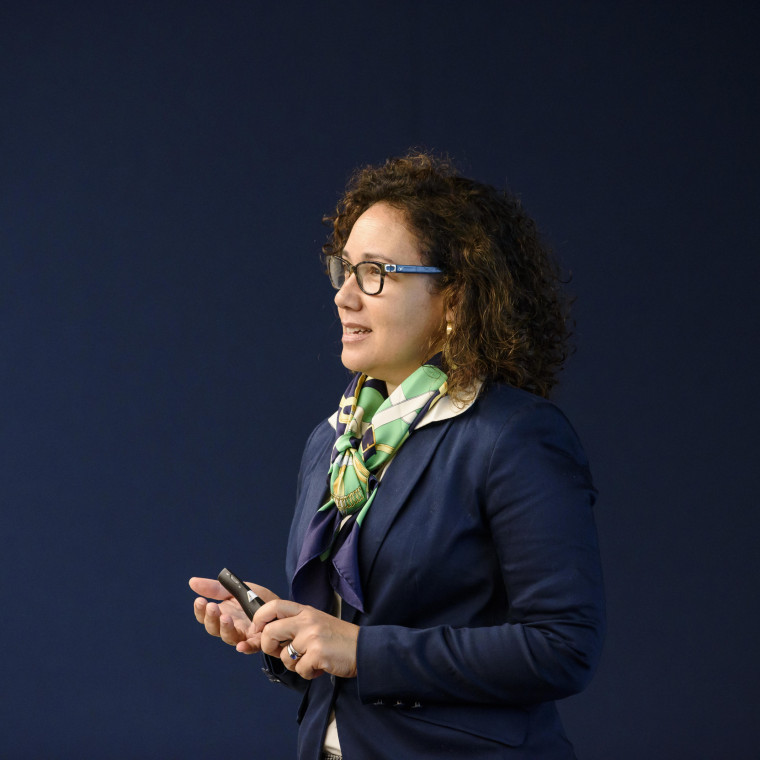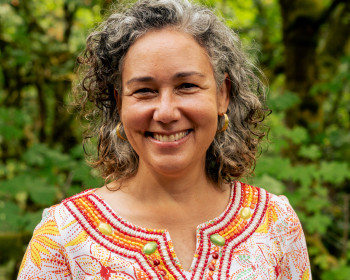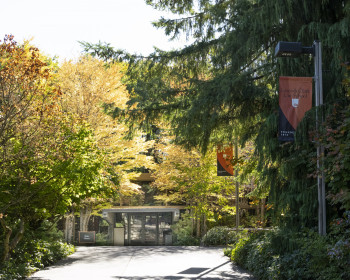Lewis & Clark Law Professor and student collaborate on paper for Climate Social Science Network.
Professor Lisa Benjamin and 3L student Akriti Bhargava were co-authors of the seminal report on “Climate-Washing Litigation Legal Liability for Misleading Climate Communication.”
Open gallery

Lewis & Clark Law has a renowned reputation for its Environmental Law program, but faculty and students alike also gain from experiences outside of the classroom.
In addition to her teaching, Lewis & Clark Professor, Lisa Benjamin, serves as a co-chair of the Climate Accountability Working Group within the Climate Social Science Network (CSSN). In that role, she collaborated with student and research assistant Akriti Bhargava ’22 and other members of the working group to write “Climate-Washing Litigation - Legal Liability for Misleading Climate Communications” which was published on the CSSN website January 13, 2022 and picked up by Bloomberg Legal for widespread dissemination.
Bhargava was one of two initial authors that helped organize the report and get it off the ground. The project later expanded to include collaboration from multiple authors. When asked about her experience in CSSN, Bhargava stated that “the intra-personal and social aspects of working on a transnational team of academics from varied fields of expertise were…invaluable parts of the experience.” Through CSSN she has “collaborated with academics and experts from Stanford Law School and the London School of Economics, which is just incredible.” In addition to the Climate-Washing Litigation report, Bhargava has three other publications related to climate change law and policy in the works.
According to their website, CSSN is “an international network of social science scholars focused on understanding the cultural and institutional dynamics of the political conflict over climate change.” Benjamin was invited in 2020 to serve as co-chair of the Climate Accountability Working Group within CSSN. The working group focuses on five main areas: supply chain litigation and accountability, lobbying accountability and litigation, identifying greenwashing and miscommunication of risks, media and discourse analysis of how climate litigation is perceived, and understanding reactive litigation. As co-chair of the working group, Benjamin holds meetings and collaborates with other members to research and produce papers investigating emerging issues in climate accountability, such as this latest one on climate-washing litigation.
In addition to her role as co-chair of the working group, Benjamin is involved in a variety of other climate-focused organizations, including the United Nations Framework Convention on Climate Change (UNFCCC) Compliance Committee (Facilitative Branch), the Northwest Environmental Defense Center, and the UN-backed Race-to-Zero campaign. Benjamin has been interested in environmental law with a climate change focus since 2008. Her interest in the field stems from personal experiences with climate change while living in a small island developing state, as well as her experience as a negotiator in the UNFCCC system. When asked about the importance of the CSSN specifically, Benjamin stated that “it’s fun to collaborate with colleagues at other institutions around the world who are passionate about similar issues. We are able to exchange views and co-author papers on new and interesting topics. The grant [provided by CSSN] enables us to hire research assistants who can then be co-authors of project-based publications and contribute to innovative research on emerging legal issues in climate accountability.”
Many environmental issues extend beyond governmental boundaries, so the CSSN provides both Benjamin and Bhargava with an opportunity to engage with scholars outside of the Lewis & Clark sphere.
Law Communications is located in room 304 of Legal Research Center (LRC) on the law Campus.
MSC: 51
email jasbury@lclark.edu
voice 503-768-6605
Cell: 626-676-7923
Assistant Dean,
Communications and External Relations, Law School
Judy Asbury
Law Communications
Lewis & Clark Law School
10101 S. Terwilliger Boulevard MSC 51
Portland OR 97219


